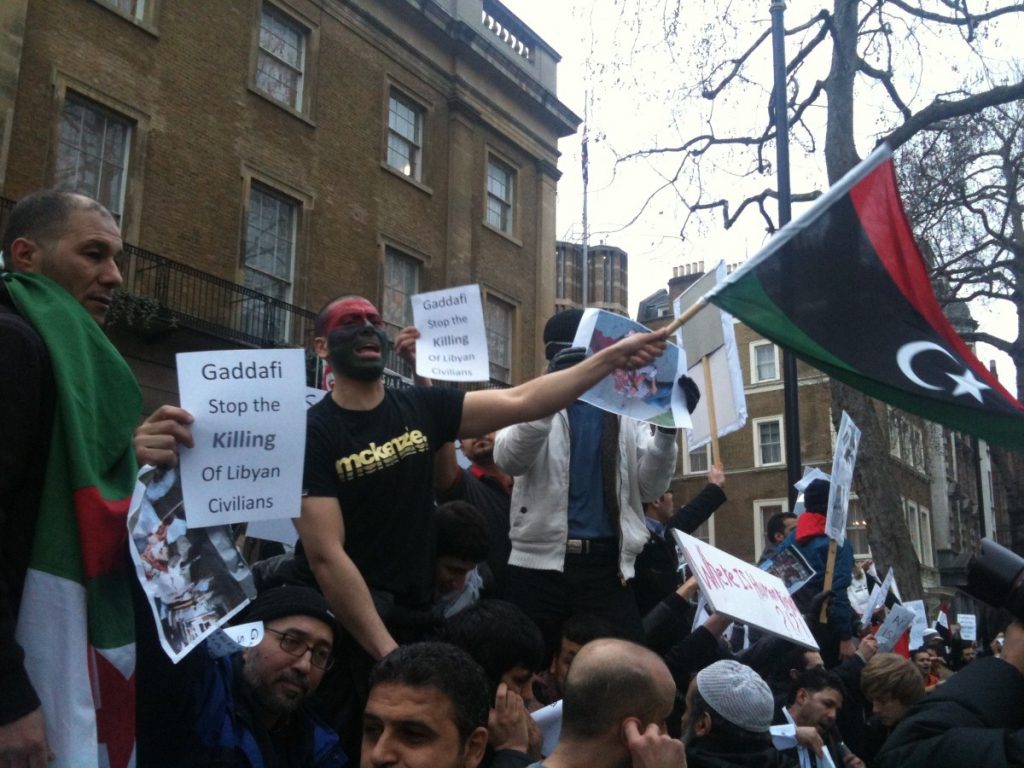UK joins with France to issue Libya ultimatum
By Ian Dunt
The UK has issued a joint ultimatum with France threatening tougher action if the violence in Libya does not stop, putting both countries at the front of diplomatic efforts towards the war-torn north African state.
The letter comes as forces loyal to Col Muammar Gaddafi continue to make inroads into rebel-held territory. There is now something close to consensus in international circles that the regime will not be toppled without outside help.
The letter put David Cameron and Nicolas Sarkozy at the forefront of international efforts to secure a no-fly zone, an idea that Washington remains lukewarm towards.


“We support continued planning to be ready to provide support for all possible contingencies as the situation evolves,” Mr Cameron and Mr Sarkozy wrote in a letter to the president of the European Council.
“This could include a no-fly zone or other options against air attacks.”
The letter continued: “The world is witnessing on a daily basis an unacceptable continuation of violence and repression in Libya.
“It is clear to us that the regime has lost any legitimacy it may have once had.
“To stop further suffering of the Libyan people, Muammar Gaddafi and his clique should leave.”
It added: “France and the UK are committed to the sovereignty, independence, territorial integrity and national unity of Libya.
“When the Libyan people win their fundamental rights, we should be ready to support them with the necessary assistance and co-operation.”
An expert at the well-respected Royal United Services Institute (RUSI) told politics.co.uk the letter showed Mr Cameron was offering “moral leadership”.
Barak Seener, a research fellow in middle eastern studies at the institute, said: “Cameron has taken the moral leadership which Sarkozy has followed and which Obama has yet to follow – to have military strikes from the air to remove Gaddafi.
“I think the letter will place pressure on other leaders to follow suit.”
The letter comes after France unsettled efforts to present a united European front by unilaterally recognising the rebel’s Interim National Council.
Critics accused Mr Sarkozy of acting on a whim and replicating the mistakes of previous western interventions by backing domestic leaders about which little is known.
London has stopped far short of recognising the council, but the foreign secretary talked to senior members of the opposition yesterday.
William Hague had problems of his own however, as murmurs of discontent continued to undermine his position in the government.
“I am not calling on him to resign but I am asking him to raise his level of performance,” shadow foreign secretary Douglas Alexander told the BBC’s Question Time.
“I don’t think the issue is his intellect or his commitment. It is just the judgements he has been making. Government is tough.”

